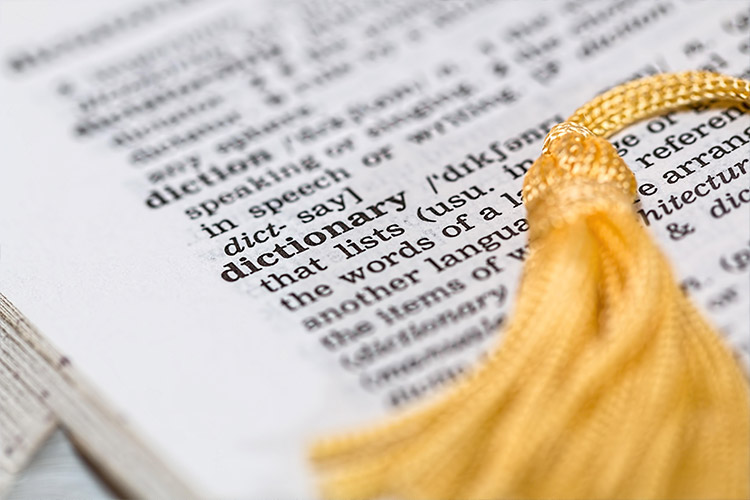Summary
- The so-called Hague Apostille is a simplified form of authentication for documents intended for use abroad – specifically between the contracting states of the Hague Convention. In many cases, it replaces the more complex legalization process and serves to confirm the authenticity of the signature and official seal on a document.
- Within the EU, an apostille is often no longer required. Thanks to an EU regulation, a multilingual standard form is sufficient for civil status documents (e.g. birth, marriage, death), and it is provided to the relevant authorities. For documents such as passports or ID cards, an apostille is generally not necessary among Hague Convention member states.
- Legalization is a form of authentication used for documents intended for use in countries that are not parties to the Hague Apostille Convention sind. Unlike the apostille, legalization is carried out by a diplomatic mission – that is, by the embassy or consulate of the country where the document will be used.
Public documents should be duly legalized for their international use. In most cases, the legalization takes the form of the Hague apostille, as the Hague Convention of 1961 provides. The states that are parties to the Convention mutually recognize the legal validity of the apostille so that the requirement of consular legalization for foreign public documents no longer applies.
The apostille is a stamp in the shape of a square. It should be filled in in the official languages of the issuing authority. The heading "Apostille (Convention de la Haye du 5 octobre 1961)" written in French is a mandatory requirement for an apostille's validity. The Hague apostille confirms the authenticity of the signature, the position in which the signer has acted, and the authenticity of the seal or stamp with which the document is attested. Each apostille is registered and contains the issue date and unique number. The apostille is issued by the competent authorities for a document. More information about the country-specific requirements for the apostillation procedure can be found in our country information sections.
Currently, the number of states that are parties to the Hague Convention abolishing the Requirement of Legalization for Foreign Public Documents of 5 October 1961 is 127. Many countries of the former Soviet Union have ratified the Convention.
For some countries that have acceded to the Convention, special rules apply. For example, Germany has objected to the accession of Azerbaijan, Burundi, Dominican Republic, India, Kyrgyzstan, Kosovo, Liberia, Morocco, Moldova, Mongolia, Paraguay, Tajikistan and Uzbekistan. This means that the agreement on Hague apostille between Germany and these countries does not apply. Therefore the documents must undergo consular legalization to be validated for their use in Germany.
Schmidt & Schmidt offers apostille certificates from all 127 states that have acceded to the Hague Convention.
In the following country pages you will find detailed information about the specifics of the procedure as well as the authorities responsible for issuing an apostille or the consular legalization for your documents in each particular country.
Country information

Apostille and consular legalization from Russia and the Eurasian Economic Union
The Eurasian Economic Union (EAEU) is a political and economic union between Russia, Belarus, Kazakhstan, Armenia and Kyrgyzstan. All of these countries are members of the Hague Convention.

Apostille and consular legalization from Europe and European Union
All EU member states have joined the Hague Convention. We will assist you with apostille and consular legalizations in the EU and other European countries.

Apostille and consular legalization from Asia
The emerging markets of Asia attract many. For your documents to be recognized in an Asian country, they need to be legalized.

Apostille and consular legalization from the Americas
Most states in North, South and Central America recognise the apostille. Canadian documents require legalization. We will assist you with the apostille and consular legalizations from the countries of the Americas.

Apostille and consular legalization from Africa
Not all African countries have joined the Hague convention. We will do our best to help you with the consular legalization of your documents issued in these countries.

Apostille and consular legalization from Oceania
Apostille stamp is widely used in Australia and Oceania, and recognized by all the 1961 Convention member states. We will assist you with the apostille from these countries.
What is an apostille?
The so-called Hague Apostille is a simplified form of authentication for documents intended for use abroad—specifically between the contracting states of the Hague Convention. In many cases, it replaces the more complex consular legalization process and serves to confirm the authenticity of the signature and official seal on a document.
The apostille is a square-shaped stamp or sticker affixed by a competent authority of the issuing country. It may be written in the official language of the issuing authority, but the heading “Apostille (Convention de La Haye du 5 octobre 1961)” must appear in French, as this is a mandatory requirement for its validity. Each apostille is registered and contains an issue date and a unique reference number.
An apostille is required when a German document (e.g., a birth or marriage certificate) needs to be submitted to a foreign authority. The receiving country can then trust that the document is legally valid.
In our video, we explain what an apostille is, how it works, and where you can apply for one. If you need to legalize a foreign document with an apostille, Schmidt & Schmidt is here to assist you. We offer apostille services for documents from more than 100 countries.
Electronic Apostille (e-Apostille)
As part of technological progress, the so-called e-APP (electronic Apostille Program) was launched in 2006 by the Hague Conference on Private International Law in cooperation with the National Notary Association of the United States. By 2024, around 40 countries—including individual U.S. states — have started issuing apostilles in electronic form, either optionally or exclusively. Despite this development, there are still no internationally uniform or legally binding standards for the technical implementation of the e-Apostille.
Many countries refise to issue the electronic apostille. It remains to be seen whether and when the Hague Apostille Convention will be amended in order to standardize and specify the requirements for e-Apostilles.
For more information about the electronic apostille, read our article.
Requirements for documents to obtain an apostille
- ✔️ Original dokument: The apostille can only be affixed to the original document — not to copies or scanned versions.
- ✔️ Good physical condition: The document must be clean, intact, and free of tears, stains, or creases.
- ✔️Clear legibility All signatures, stamps, and official markings must be complete and clearly visible.
- ❌ Foreign additions: The document must not contain handwritten notes, sticky notes, or any unofficial markings.
- ❌ Damage or heavy wear:Severely damaged, heavily yellowed, or illegible documents will not be accepted.
- ❌ Copies or digitally edited versions: Documents that have been copied, scanned, edited, or digitally altered cannot be apostilled.
What is consular legalization?
Legalization is a form of authentication for documents intended for use abroad — especially in countries that are not party to the Hague Apostille Convention.
Unlike the apostille, legalization is carried out by a diplomatic mission — that is, by the embassy or consulate of the country in which the document is to be used.
These diplomatic missions often require that the document first receive pre-certification by a national authority, which confirms the authenticity of the signature and official seal on the document. Only after this pre-certification can the foreign mission proceed with the actual legalization.
For example, in Germany since January 1, 2023, the so-called final certification has been centrally handled by the Federal Office of Foreign Affairs, Section for Apostilles and Claims Management, located in Brandenburg. This final certification builds upon the pre-certification issued by the respective state authority.
The complete process typically includes: certification, intermediate/pre-certification, final certification, and legalization by the foreign mission. Due to its multi-step structure, the procedure is often time-consuming, costly, and involves considerable bureaucratic effort.
If you need to legalize a foreign document, Schmidt & Schmidt is here to help. We offer consular legalization services for documents from more than 80 countries.
The main differences between an apostille and consular legalization of documents
Both an apostille and consular legalization serve the same purpose: they authenticate an official document for submission to authorities in a foreign country. However, there are significant differences between the two procedures.
| Apostille | Consular legalization | |
|---|---|---|
| Usage | Can only be used between countries that are parties to the Hague Convention on the Simplified Legalization of Documents. | Used between countries where one or both are not parties to the Hague Convention, or when one of the contracting states has raised an objection to the accession of the other. |
| Difficulty of obtaining | Moderate. To obtain an apostille, you must contact the competent authority in the country where the document was issued. | High. For consular legalization, you must deal with several authorities and consulates of the country where the document was issued. |
| Pre-certification | Not required. | Pre-certification by the competent authority is required. |
| Legalization at the consulate of the destination country | You do not need to contact the consulate of the destination country. | The final step of legalization takes place at the consulate of the destination country, usually in the country of issuance. |
Opportunities for every industry

Lawyers and notaries
In order to perform legal actions, submit foreign documents to court, or legalize a power of attorney from abroad, specific foreign documents should be properly attested. Schmidt & Schmidt can help you certify such documents with apostille or legalize them in the relevant embassy.

Global Mobility and Visa Support
We offer a wide range of services for companies working in the field of visa support, relocation and Global Mobility. We can assist you with the legalization of your clients’ or employees’ civil status documents, documents confirming current status of employer and other relevant certificates.

Translation agencies
Companies can choose from the widest range of services offered in the field of legalization and apostille certification of translations for use in more than 100 countries.

Banks and financial institutions
We provide banks, insurance companies, accounting firms and other financial institutions with the legalizations of foreign documents essential for confirming the eligibility of individuals, proving the existence of legal entities as well as KYC procedures and AML prevention.
Recognition of the authenticity of public documents within the EU
Bilateral international agreements and EU regulations on the international circulation of documents simplify the procedures that public authorities must follow when processing documents issued in other countries.
Bilateral international agreements
For example, Germany has concluded bilateral international treaties with several European countries that allow for mutual recognition of certain public documents without additional proof of authenticity. In such cases, neither an apostille nor consular legalization is required, provided the documents are properly issued and sealed by the competent administrative authorities.
These agreements generally apply to documents issued by administrative authorities, such as civil status certificates, school records, or official confirmations. Important: Specific provisions may vary depending on the country and the type of document.
Germany has bilateral agreements with Belgium, Denmark, France, Greece, Italy, Luxembourg, Austria, and Switzerland, under which certain documents are exempt from any form of legalization, as long as they are sealed by the appropriate administrative authority.
❗️ Special cases and exceptions:
Not all agreements are applied equally by both contracting states. For example, Belgium does not consider the bilateral agreement with Germany binding, so in practice, an apostille may still be required there. Similarly, the German-Swiss agreement of 1907 does not apply to notarial documents, which must therefore still be apostilled.
Multilingual Documents (under CIEC Agreement)
Documents issued according to the templates of the International Commission on Civil Status (CIEC) — such as birth certificates, marriage certificates, or certificates of no impediment to marriage — are exempt from any legalization requirement in contracting states, provided they are multilingual and issued in accordance with CIEC standards.
Contracting states of the Vienna CIEC Convention of 8 September 1976 (on the issuance of multilingual extracts from civil status registers: birth, marriage, and death certificates):
- Belgium, Bosnia and Herzegovina, Bulgaria, Germany, Estonia, France, Italy, Cape Verde, Croatia, Lithuania, Luxembourg, North Macedonia, Moldova, Montenegro, Netherlands, Austria, Poland, Portugal, Romania, Switzerland, Serbia, Slovenia, Spain, and Turkey.
Contracting states of the Munich CIEC Convention of 5 September 1980 (on the issuance of multilingual certificates of no impediment to marriage):
- Germany, Greece, Italy, Luxembourg, Moldova, Netherlands, Austria, Portugal, Switzerland, Spain, and Turkey.
Regulation on public documents (EU) 2016/1191 of 6 July 2016
In addition, the Regulation on public documents (EU) 2016/1191 of July 6, 2016 simplifies the circulation of certain public documents that must be presented in an EU Member State and that were issued in another EU Member State, thereby exempting public documents from authentication with an apostille with the aim of reducing the administrative burden and costs for citizens.
⚠️ Important: Company-related (corporate) documents are not covered by this regulation and must still be apostilled or legalized.
Digitalisation Directive II
On 31 March 2023, the European Commission presented a new proposal (COM [2023] 177) to optimize the use of digital tools and procedures in EU company law The initiative aims to further strengthen the application of digital processes within European company law.
A key element of this proposal is the abolition of the apostille requirement for company-related documents within the EU. The objective is to facilitate cross-border procedures and eliminate existing bureaucratic obstacles. If adopted, this directive could represent a significant step toward a digital, efficient, and practical internal market.
You can read more about Digitalisation Directive II in our article.We are closely monitoring legal developments and are happy to advise you on how you can already benefit today from existing simplifications in international document circulation.
Notarization
Some documents cannot be legalized according to the procedures above. This is the case for copies of documents, translations, founding documents, financial reports, contracts, bill of lading, certificate of origin, etc. For such documents, a notary may issue a notarized certificate. The notarial certification of the copy certifies that the copy and the original are absolutely identical. The notarization of the translation confirms that the translation is correct and made by a certified and certified translator. If required, Schmidt & Schmidt can certify the translations by a public notary for you.Your benefits
- Individual consultation
- Fast and reliable processing
- No registration or subscription required
- Quick apostille and legalisation
- Cost optimization
- Data protection
Schmidt & Schmidt is a guarantee for the highest quality and reliability. All processes within our company are strictly regulated. Our specialists are well trained and know the field perfectly.
Working with us is easy and convenient!


























































